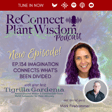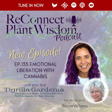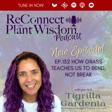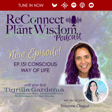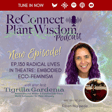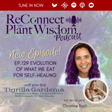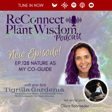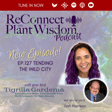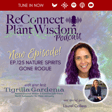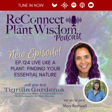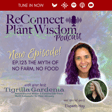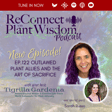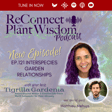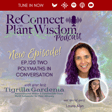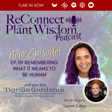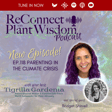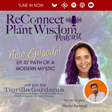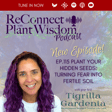
Ep.126 Wildness as a Core Intelligence
What if wildness is our DEEPEST intelligence?
In this solo episode, I explore how plants model adaptive, root-deep wisdom—and how you can rewild your inner landscape without burning your life down. We’ll move from self-containment to flow, learn to read openings like a plant reads light, and create the conditions (soil, water, community) your authentic expression needs to thrive.
You’ll leave with a grounded way to notice where your gifts want to grow now, plus simple practices to partner with a plant ally and build a living ecosystem that supports your next evolution.
What You’ll Learn About Being Yourself and Personal Growth
🌱 Wildness = adaptability: respond to change without losing your essence.
🌱 Flow over containment: grow toward light, set living membranes (not rigid walls).
🌱 Prepare the ground: design conditions—time, space, community—so your gifts can root.
🌱 Partner with a plant ally to mirror your wild intelligence in daily life.
✨ Resources ✨
🌱 Expanded Show Notes
🌱 Reconnect with Plant Kin (monthly workshop) — last Saturday each month
🌱 Naturally Conscious Community (Blooming/Flourishing Sprouts)
🌱 Root to Rise discovery call
🌱 Episode 74 (living membranes vs rigid boundaries)
🌱 Plant Wisdom Book Club & Plant-Inspired Masterclass
✨ Chapters ✨
00:00 Introduction
08:15 Path & context
18:04 Ad: Zencastr
26:40 Defining wildness
34:50 Guiding your wild self
43:08 Cattail lesson
51:27 Practice & next steps
🔗 Connect & Explore More
🌿 Website
🌿 Contact
🌿 Shop Eco-Conscious Partners
Socials
📸 Instagram
📘 Facebook
💼 LinkedIn
▶️ YouTube
🎵 Credits
Opening + Closing music by @Cyberinga and Poinsettia

